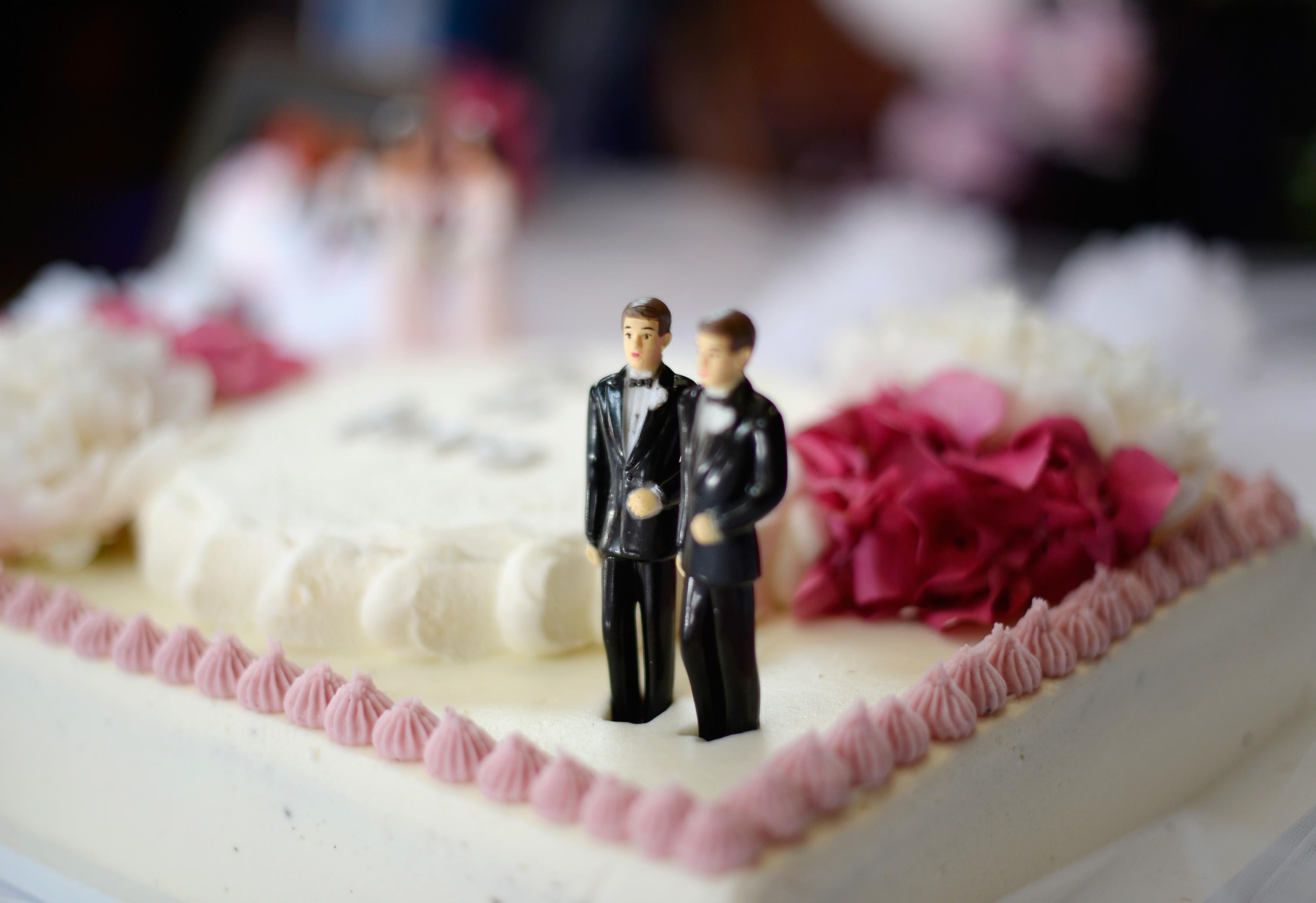As nationwide same-sex marriage becomes increasingly inevitable, anti-gay activists are turning to the next frontier of the gay rights movement: private discrimination. Today, the Huffington Post tracks a few seemingly thorny cases that pit individual religious liberty—that is to say, the liberty to discriminate—against anti-discrimination laws. All these cases follow the same pattern: A private business refuses to render services to a gay couple or group, then finds itself slapped with a lawsuit. The business pleads religious liberty. The Christian right is outraged.
As the Huffington Post article suggests, ending private discrimination against gays isn’t as much of a clear-cut, slam-dunk issue as marriage equality. When a state allows gay people to get married, nobody really loses (unless they’re truly crazy). But when a state bans private discrimination against gay people, there’s always a losing side—the homophobes. And even if these homophobes’ cause is bigoted, their seemingly principled stand in the name of religious liberty can evoke more sympathy than NOM’s shrill shrieks.
Still, it’s important to remember a fundamental point about the purported clash between the right to discriminate and the right to be free from discrimination: In the private sector, neither is mandated by the Constitution. The Fifth and 14th Amendments’ guarantee of equal liberty is only binding on the state and state employees; anyone else is, constitutionally speaking, entirely free to discriminate. Conversely, the First Amendment’s commitment to free exercise of religion cannot be invoked by a private business to skirt compliance with an otherwise valid state law. (Expressly religious institutions like churches have heightened protections, of course.)
The trouble arises, then, only when legislatures enter the mix. In recent years, 21 states and the District of Columbia have enacted laws proscribing private discrimination against gay people. These laws are fairly simple, generally mirroring those that ban discrimination against racial minorities and carving out exceptions for religious groups and institutions. But if the letter of anti-discrimination laws is straightforward, its application is anything but. Consider a recent case in New Mexico, where a Christian photographer refused to take photographs at a gay wedding, citing her personal distaste for same-sex marriage. Although 85 percent of Americans support her right to refuse, the New Mexico Supreme Court held unanimously that, as a private employer, the photographer must photograph both gay and straight weddings under the state’s Human Rights Act.
Legally, this ruling was correct; the photographer offered her skills solely as a business service, not as a form of personal expression. It’s the equivalent of a taxi refusing to pick up a gay couple, or a restaurant refusing to serve a gay family. Yet it’s easy to sympathize with conservatives who argue that the photographer’s religious liberty and free speech rights were violated. Isn’t the basis of liberty the freedom to value one’s own beliefs over those endorsed by the state? And isn’t it quintessentially American for private businesses to choose their own customers?
Actually, it’s not: Imagine if the photographer had refused to photograph an interracial wedding rather than a gay one. Her behavior would be so clearly reprehensible that it’s hard to imagine any American defending it. It wasn’t always that way. For centuries, racists cited the exact same argument, religious freedom, to discriminate against black people, since the Bible arguably condones slavery and thus can be read to cast racial minorities in an inferior light. Today that argument sounds like nonsense, and it was rendered legally void with the passage of the 1964 Civil Rights Act. The Christian argument for anti-gay discrimination will sound similarly ludicrous in just a few decades.
While anti-gay views still carry cultural currency, however, pro-gay legislators should tread lightly on the issue of private discrimination. Aside from job discrimination—a vital issue with little legal or moral ambiguity—the finer points of anti-gay discrimination laws are best relegated to the state level for the time being, allowing states like California to blaze a trail for reactionary states to follow in the coming years. Anti-gay activists already claim, absurdly, to be victimized; more cases like New Mexico’s would only fuel their fire and likely give them popular support. Mandating that private businesses serve gay and straight customers equally is constitutionally sound and morally correct. But given the continued cultural divide over gay rights, anti-discrimination laws are, for now, a pill too bitter for many states to swallow.
